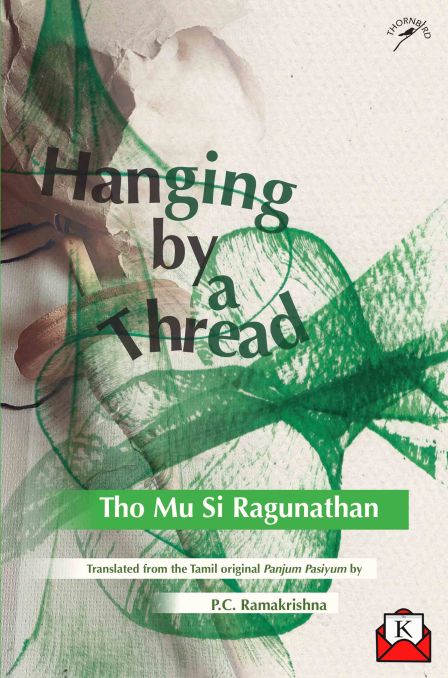Exclusive Interview Of P.C. Ramakrishna On Translating Panjum Pasiyum


Tho Mu Si Ragunathan’s Panjum Pasiyum, which is set in Tamil Nadu in the 1950s, depicts the challenges faced by handloom weavers as they fight against exploitation, economic problems, and government indifference. The story demonstrates their tenacity in the face of unfair business practices, high yarn costs, and competition from mill cloth. It centers on the entwined lives of Kailasa Mudaliar, a debt-ridden weaver, and Thathulinga Mudaliar, an exploitative businessman, as well as their kids. Through demonstrations and sociopolitical movements, the weavers’ collective struggle for justice is shown in the narrative. This moving story of unity and victory is brilliantly brought to life in the English translation, Hanging on a Thread.
The Kolkata Mail correspondent Priyanka Dutta caught up with the translator of this book P.C. Ramakrishna in an exclusive conversation. Excerpts…
What did you keep in mind while translating the work of such an eminent author?
P.C. Ramakrishna- When one translates an eminent author’s work, one must keep in mind the faithfulness to his narrative, and not add any subtext that may occur to you. One must try and enter his mind and not use any translation that would distort his thought process.
Many people often feel that reading a translated work means some meaning is lost in translation. Do you think so?
P.C. Ramakrishna- Transliteration vitiates the inherent “feel” of an original work. On the other hand, translation takes into account the reader of the translation making contextual sense of the ambiance the writer describes in his story and the integrity of his characters.. Transliteration is akin to caricature
You are an author also. What aspects of this particular novel appealed to you the most while translating?
P.C. Ramakrishna- As an author and screenplay writer for plays, I am constantly on the lookout for conflict in the story, nuances in storytelling, and surprises in the narrative. “Hanging by a Thread has all these elements, and it appealed to me. If you read my Translator’s note at the end of the novel, it will give you an idea of what gripped me.
What tips will you give to young people who want to enter the world of translation?
P.C. Ramakrishna- Young translators must translate with the “feel” of the narrative, and not get straitjacketed by the mere words.
What is the next project you are working on?
P.C. Ramakrishna- I am working on a play that is a translation of the eminent writer Sivasankari’s novel, “Karunai Kolai“, which means “Mercy Killing”.
